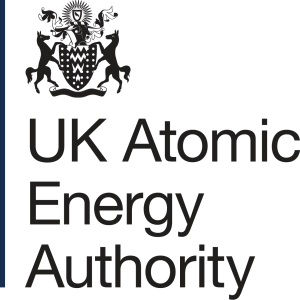Jimmy Nicholls joined J A Kemp as a trainee patent attorney in the London office in 2006, following his graduation from University College London with a PhD in Biochemistry. Jimmy became a partner in 2016 and has been working in J A Kemp's Paris office since 2018.
Jimmy Nicholls has been with patent attorney firm J A Kemp since 2006. He has worked in the firm’s London and Oxford offices and became a partner in 2016. He is now based in the Paris office. He joined the firm as a trainee patent attorney after completing a PhD in Biochemistry and Molecular Biology.
Why did you choose a career as a patent attorney?
I wanted to pursue a career in science after completing my PhD, but was ready to move away from the bench. I was interested in a role where I could continue to evaluate implications of results from scientific research, but apply them in a more commercial environment.
I learnt about the patent profession from a university friend who had qualified as a patent attorney. I was attracted by the mixture of scientific, legal and linguistic skills involved in the job. I was also attracted by the main entry requirement to the profession being a scientific qualification, such that I did not need to completely re-train as a lawyer. Instead, the specific legal knowledge needed to practise as a patent attorney would be learnt gradually while in the job, with a series of examinations to obtain the necessary qualifications being taken at various stages.
What do you enjoy most about the job?
The range of different types of work involved. We work for a variety of technology-based organisations, from universities to start-ups to large life sciences companies. Each type of organisation has different needs for patent protection – from securing investment/assisting commercialisation for universities and start-ups, to providing a valuable monopoly right around commercially important technologies for established life sciences companies. The work we do ranges from drafting/filing of a first ever patent application for a new start-up to defending a key patent protecting a commercial product against challenges by third parties.
I enjoy the satisfaction of seeing work I have carried out for a client achieve tangible results for their business. The quality of drafting of a patent could impact on whether a key investment needed to grow a business is made or not. Succeeding in defending a key patent could prevent competitors from developing similar products and help a client maintain a leading market position. One of the most important projects I have worked on related to defending patents being enforced against competitors in national courts – if we had not been successful in defending the patents, the client would not have been able to prevent competitors from using their technology. Defending or opposing a patent involves oral hearings in which you act as an advocate putting forward arguments for your client, and responding to counter-arguments from attorneys on the other side, to try to persuade the tribunal of your position. The proceedings can be very complex, challenging and unpredictable and require quick thinking on the day!
I enjoy the continual exposure to new technologies and research findings. Another interesting aspect of the job is the international reach of the patent system – we work for overseas clients and also with attorneys in other countries, to obtain patents in a range of countries all around the world. Recently, I have also had the opportunity to work in our new European office in Paris and to help develop our business further in France and continental Europe, using both English and French in my work.
What is a typical day like for you?
My role is mainly desk-based but most days I will also have conference calls or meetings. It is often important to discuss cases with clients after providing initial recommendations in writing to agree a final decision as to how to proceed. It is also important to meet inventors in person to get to grips with a new technology.
On a given day, I will deal with a large number of different projects, each at different stages in the patenting process – I may review a description of a new technology from a client and assess potential for patent protection, or review objections from a patent examiner for an ongoing patent application and evaluate how best to overcome these. I enjoy the variety this provides each day, and the challenge of managing a large number of ongoing projects at different stages. There can also often be unpredictable new actions such as a client asking for a new application to be drafted at short notice, or a client needing advice in a new dispute with a third party.
Do you have any advice for anyone wanting to get into the industry?
My main advice would be to apply to as many firms as possible, as the patent attorney profession is becoming more and more popular, with limited new positions on offer each year and lots of competition for places.
If you are potentially interested in the profession, it is a good idea to put together a list of firms and find out details of their application processes in good time before the end of your degree/doctorate. Use the Job Finder table at the back of the Chartered Patent Attorneys guide to help you.
It can also be helpful to highlight technical specialisms or other expertise (e.g. language skills/relevant work experience) which may distinguish you from other candidates with similar qualifications.








